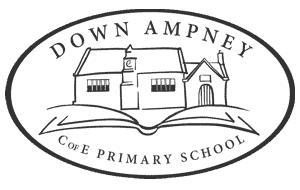
The curriculum holds pupils’ interest and motivates them to find out more about the subjects that they study.
Ofsted
French
Intent
The vision for Modern Foreign Languages at Down Ampney Primary School is that we instil in all children, a love for language learning and develop their cultural awareness, by providing a high-quality, sequential, and stimulating French curriculum. Our curriculum is designed to promote both spoken and written language skills while fostering an appreciation for French-speaking cultures. We ensure that all pupils, regardless of their background or abilities, have the opportunity to acquire a solid foundation in French, enabling them to progress towards fluency as they move through their education. We encourage children to have a ‘global’ and ‘outward thinking’ view of the world. We want them to develop understanding, tolerance and an appreciation of the rich culture of the countries whose language they are studying.
Our carefully sequenced, mixed -age curriculum is planned following a bespoke approach, supported by Language Angels. All lessons cover all 4 key language learning skills – speaking, listening, reading and writing and focuses on the integration of the 3 pillars of language learning: Phonics, Vocabulary and Grammar.
Our coherent and progressive French curriculum, led by a languages specialist, addresses the three pillars of phonics, vocabulary and grammar, ensuring significant progress by the end of the primary phase. Our aim is that children learn to recognise and recall core French phonemes and are able to apply them across all units of work, develop and expand their core vocabulary and apply grammar rules when writing.
We teach children about French festivals and traditions to broaden their view of the world; provide French children’s newspapers, listen to French radio and explore key French figures, both modern and historical.
Lessons are carefully sequenced across the three teaching types (Early Language, Intermediate and Progressive) and are scaffolded so that previous knowledge is always recycled first. Pupils build on solid foundations. Children use a variety of reference materials so that they have the necessary tools to support them in independent work as they progress.
Repetition and practice is at the core of our language teaching, with a focus on the visualisation of the information along with rhythmic regulatory exercises.
High standards are set for all pupils, including those who may have less experience of foreign languages, cultures and traditions than others. The focus on oracy and communication allows all children ample opportunity to express themselves and help develop their cognitive and problem-solving skills as they learn to be more proficient and confident in French.
Our curriculum is adapted to ensure progression across units through Early Language Teaching, Intermediate Language Teaching and Progressive Language Teaching. Our two-year rolling programme means children move through different units of work and no unit is repeated. End points are adapted to fit the needs of each cohort. Differing levels of challenge in lessons ensure all children are able to make progress. A range of teaching approaches: native voice files, colourful, engaging and interactive lessons, fun karaoke songs, and appropriate desk-based activities ensure that lessons are accessible to and rewarding for SEND children.
A range of cultural backgrounds are represented through the pictorial nature of lessons, promoting equal opportunities and inclusivity. We endeavour to ensure all pupils feel valued, respected and included in their foreign language lessons.
Implementation
Pupils in Key Stage 2 learn French through a 30 minute weekly lesson taught by the class teacher. Lessons are taught using fun, interactive visuals, combined with high quality audio recordings of native French speakers. In UKS2, French is taught by the class teacher, who is a language specialist and fluent French speaker. Children progressively acquire, use and apply a growing bank of vocabulary, language skills and grammatical knowledge organised around age-appropriate topics and themes – building blocks of language into more complex, fluent and authentic language. Our planning ensures the building blocks of phonics feed into every unit. Knowledge and awareness of required and appropriate grammar concepts is taught throughout all units at all levels of challenge.
French phonemes are taught explicitly in a lesson and then revisited multiple times through lessons, songs and interactive games. Pupils’ phonetic knowledge is built over time, moving from the phoneme on its own, to seeing it in high frequency words and then finally incorporated in context in a longer piece of text. Every unit recaps and consolidates core vocabulary and then adds on more language so that pupils gradually expand their range of language helping them to understand more and start to say and write more. Children are able to use more complex and sophisticated language, as their range of vocabulary expands. Grammar is woven into every unit in across all three teaching types. It is introduced both implicitly and explicitly and children become familiar with both recognising and using grammar features.
Grammar is integrated and taught discreetly throughout all appropriate units. Grammar Explained units which run alongside core teaching units, ensure pupils are exposed to all of the appropriate grammar, so they are able to create their own accurate and personalised responses to complex authentic foreign language questions by the end of the primary phase.
A range of French books and newspapers are available for children to practice their reading skills and identify unknown language, alongside a fluent adult.
Impact
A recent pupil voice highlighted that the approach of revisiting previously learnt language and vocabulary allows children to progress from different starting points: “I love French because I feel that we recap things quite a bit, so it gets stuck in your mind. After the first few lessons, I can remember things. I also like the wide range of topics that we do”.
Children in Key Stage 2 make good progress in their language learning, from all starting points and are able to show progression in all core language areas.
Linked documents available to download:

